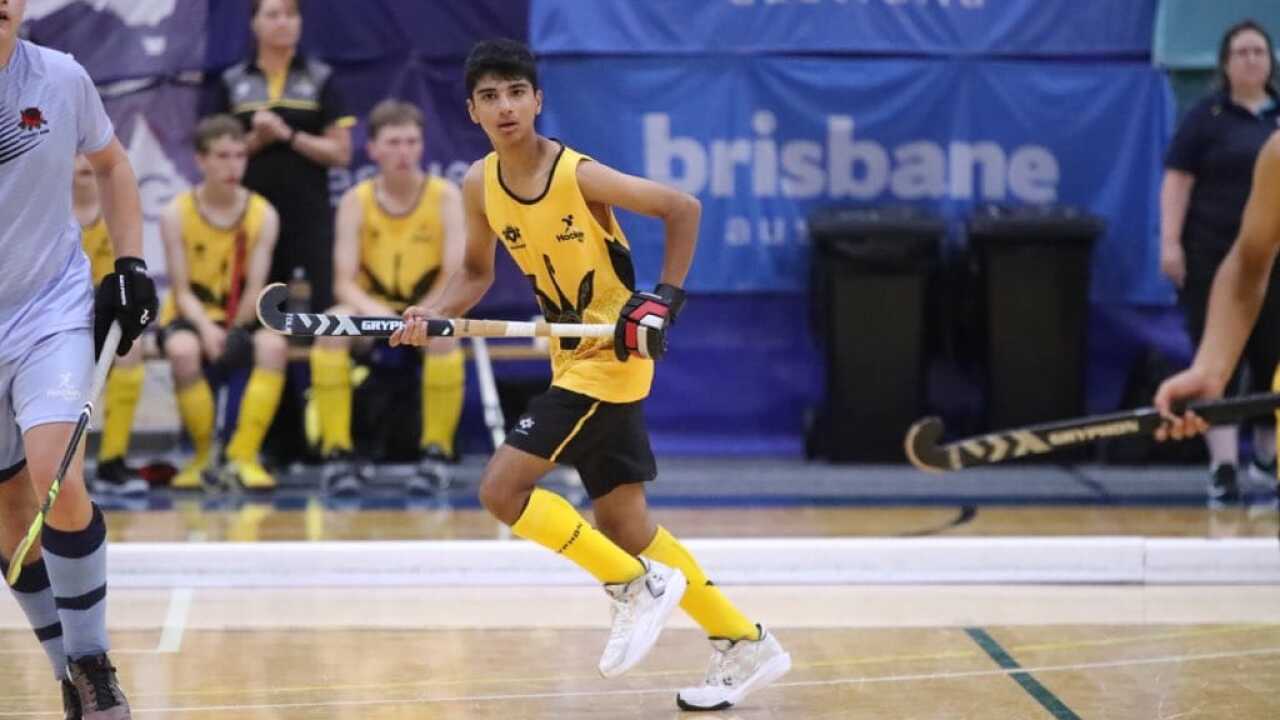Key Points
- Speedcubing - solving a Rubik’s cube against the clock - has grown in popularity in recent years.
- 'The cubing community unites people from diverse backgrounds,' Australian national speedcuber Divnoor Singh Bajwa says.
- A clinical psychologist says puzzle-solving can help expand the working memory of the brain.
Divnoor Singh Bajwa was nine years old when he first set eyes on a friend’s Rubik’s cube.
"I knew right away I had to have one too. I was captivated," the Melbourne 18-year-old told SBS Punjabi.
The retro puzzle has enjoyed a comeback in recent years, spurred on by an increase in competitions and celebrities like Hollywood actor Chris Pratt sharing videos of their cubing exploits online.
"As soon as I learned how to solve it, I fell straight down the rabbit hole. Practising by watching YouTube videos, eventually I got my speed down from over a minute to the average of around eight seconds I have today," Divnoor said.

Speedcuber Divnoor Singh Bajwa at SBS Studios, Melbourne.
He represented Australia at the recent Rubik’s Cube World Championship in South Korea, alongside 1,200 participants from 55 countries.
Cubing has not only been a personal pursuit for me, but it has also opened doors to incredible experiences.Divnoor Singh Bajwa

Team Australia speedcubers. Credit: Supplied by Divnoor Singh Bajwa
What is speedcubing?
The Rubik’s cube, a 3D puzzle conceived by Erno Rubik, a Hungarian sculptor and architecture professor, burst onto the toy scene in the 1980s.
Widely considered among the of the 20th century, the Rubik's cube demands considerable patience and determination to solve.
Speedcubing sees participants aim to solve the 3x3x3 Rubik's Cube in the fastest time possible, with results coming in two categories: single solve, and average of five solves.
The sport is taking off, with more than 140,000 cubers from over 140 countries with the World Cube Association (WCA).
Divnoor, who is a volunteer delegate with Speedcubing Australia (SA), a not-for-profit organisation recognised by the WCA, said the number of competitors is growing down under, too.
Started in 2010, SA now organises more than 60 competitions a year across Australia, with attendances ranging from 100 to nearly 1,000.
Of these, 17 are official WCA competitions, with the most well-known event centring on the Rubik’s cube, or the 3x3x3 Cube as it is officially called.
Other events include big cubes up to 7x7x7, solving the cube blindfolded and some puzzles that are not cubes such as the Pyraminx and Clock.
Benefits of cubing
Divnoor fastest single-solve is 5.39 seconds, which places him 12th in the national rankings, while he has an average solve time of 7.52 seconds.

Divnoor is among Australia's top-ranked speedcubers. Credit: Cubing.com
"Cubing has been a game-changer for me. It's not just about solving a puzzle, it's about enhancing cognitive skills, building patience, finding relaxation, improving memory and above all connecting with like-minded people," he said.
“The hobby has given me an opportunity to visit different parts of Australia through competitions and it is one of the most welcoming communities ever.
"At the world championship in South Korea in August, I met new people from across the world while competing as part of Team Australia."

Divnoor Singh Bajwa in South Korea. Credit: Supplied
"Some people may be born with higher IQ levels but they may have low working memories, and activities like cubing can be a great workout to increase the memory and develop better problem-solving skills," she explained.

Clinical psychologist Dr Gurpreet Ganda. Credit: Supplied
"It’s a fun way to occupy the time and not get bored, while improving cognitive abilities," she said.
According to the puzzle-solving can equip children for what lays ahead in life.
Solving a Rubik's cube takes persistence and patience, but so does any problem worth solving.NSW Department of Education website
Divnoor has words of encouragement for others looking to try their hand at cubing.
"This hobby is for everyone, please try it for the valuable skill of improving your focus, if you haven't already," he said.
Click on the audio to listen to the interview with Divnoor Singh Bajwa in Punjabi.






